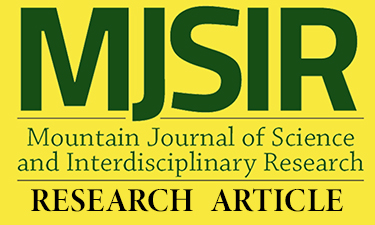Enhancing the Social Media Marketing of Agri-Tourism by Farmers in La Trinidad, Benguet, Philippines and the Development of the Hellical Model of Participatory Communication Action Research
Main Article Content
Abstract
Agri-tourism is a sustainable and growing industry in the Philippines that could further be enhanced thru social media, a low-cost marketing tool with a global reach. To maximize social media for agri-tourism, there is a need first to gather baseline information as basis for enhancement. This study assessed the capacity of 26 La Trinidad farmers on using social media to promote their farms as agri-tourism sites. The study employed the Participatory Communication Research Action (PCRA) Model. Results from community consultations, ocular surveys, key informant interviews, and document reviews revealed that the study areas have natural characteristics and enough resources to support agri-tourism. However, the farmers needed further assistance in addressing the issues that come with these characteristics and resources. The assessment test showed that the respondents have a moderate level of social media marketing (SMM) skills, knowledge, and traits. Thus, the study conducted a seminar on SMM where the participants were guided to develop SMM plans for their own farms. Additionally, the study was able to assess the PCRA Model and found it to be far more flexible than originally thought. Thus, the study crafted a more coherent PCRA model, namely the Model of Participatory Communication towards Self-management, from combining the lessons learned from this study and the strength of Dance’s Helix Model of communication. The study recommends that government or non-government extension efforts may look into further addressing the needed additional SMM knowledge, skills, and traits of the respondents as well as possible capacity building activities on product development. Future studies could look into the progress of the SMM plans developed by the respondents to find out how the respondents could be further assisted
Article Details
References
Balkrishna, B.B., & Deshmukh, A.A.(2017). A Study on Role of Social Media in Agriculture Marketing and its Scope. Global Journal of Management and Business Research: E Marketing, 17(10): 32-36.
Carleo, J., Rich, S., Colucci, S., Schilling, B., & Komar, S. (2017). Taking Advantage of Social Media[PDF]. New Jersey: Rutgers.
CIP-UPWARD & IDRC. (2005). Participatory Research and Development for Sustainable Agriculture and Natural Resource Management - A Sourcebook Volume 3: Doing Participatory Research and Development.
Damani, A. (2018, February 15). Social Media Marketing and its Characteristics-Updated 2018 [Web log post]. Retrieved July 23, 2018, from https://blog.galaxyweblinks.com/social-media-marketing-and-its-characteristics/
Department of Tourism. (2004). Rules and Regulations to Govern the Accreditation of Agri-Tourism/Farm Site.
Gonsalves, J., Becker, T., & Braun, A. (2005). Participatory research and development for sustainable agriculture and natural resource management a sourcebook. Laguna, Philippines: CIP-UPWARD.
Indiana State Department of Agriculture. (2017). Planning for Agritourism: A Guide for Local Governments and Indiana Farmers. Retrieved from https://www.in.gov/isda/files/Planning_for_ Agritourism.pdf
Jackson, C. (2017, September 26). Differences Between Skills & Traits [Web log post]. Retrieved March 19, 2018, from https://bizfluent.com/info-8247704- differences-between-skills-traits.html
Javier, A.B. (2011). Opportunities and Challenges in Tourism Development Roles of Local Government Units in the Philippines, Paper presented to the 3rd Annual Conference of the Academic Network of Development Studies in Asia (ANDA). March 5-7, 2011 Symposium Hall, Nagoya University Japan. Japan Society for the Promotion of Science (JSPS) and Nagoya University.
McHugh, K. (2011). 10 Qualities of a Successful Social Media Manager. Retrieved from https:// www.adweek.com/digital/10-qualities-of-a- successful-social-media-manager/
McCarthy, J. (2015, April 24). Facebook influences over half of shoppers says DigitasLBi’s Connected Commerce report [Web log post]. Retrieved June 16, 2017, from https://www.thedrum.com/ news/2015/04/24/facebook-influences-over-half- shoppers-says-digitaslbi-s-connected-commerce- reportMcHugh, K. (September 2011). 10 Qualities of a Successful Social Media Manager [Blog post]. Retrieved from https://www.adweek.com/digital /10-qualities-of-a-successful-social-media-manager/
Municipality of La Trinidad. (2017). Ecological Profile. Retrieved from https://www.latrinidad.gov.ph/profile/
Nigatu, T. (2012, March 6). Qualitative Data Analysis [PPT]. Slideshare. https://www.slideshare.net/deepali2009/qualitative-data-analysis-73195482
Partner, K. (2015). How to set-up an online business, www.kevpartner.co.uk.
Servaes, J., & Malikhao, P. (2005). Participatory communication: The new paradigm? Media and Glocal Change: Rethinking Communication for Development. Edited by Oscar Hemer and Thomas Tufte. Sweden/Argentina: NORDICOM/ CLASCO.91-103.
Spire Research and Consulting. (2013). The rise of agri-tourism in the Philippines. Retrieved from https://www.spireresearch.com/wp-content/ uploads/2013/09/SpirE-Journal-Q3-2013_The- rise-of-agri-tourism-in-the-Philippines.pdf
Thien, L.M., & Razak, N.A. (2012). A Proposed Framework of School Organization from Open System and Multilevel Organization Theories. World Applied Sciences Journal. doi:10.5829/idosi.wasj.2012.20.06.2016
Zoto, S., Qirici, E., & Polena, E. (2013). Agrotourism - A Sustainable Development for Rural Area of Korca. European Academic Research,1(2): 209-210.

